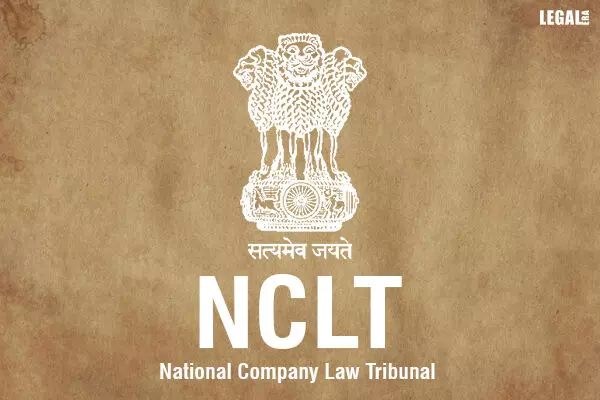- Home
- News
- Articles+
- Aerospace
- AI
- Agriculture
- Alternate Dispute Resolution
- Arbitration & Mediation
- Banking and Finance
- Bankruptcy
- Book Review
- Bribery & Corruption
- Commercial Litigation
- Competition Law
- Conference Reports
- Consumer Products
- Contract
- Corporate Governance
- Corporate Law
- Covid-19
- Cryptocurrency
- Cybersecurity
- Data Protection
- Defence
- Digital Economy
- E-commerce
- Employment Law
- Energy and Natural Resources
- Entertainment and Sports Law
- Environmental Law
- ESG
- FDI
- Food and Beverage
- Gaming
- Health Care
- IBC Diaries
- In Focus
- Inclusion & Diversity
- Insurance Law
- Intellectual Property
- International Law
- IP & Tech Era
- Know the Law
- Labour Laws
- Law & Policy and Regulation
- Litigation
- Litigation Funding
- Manufacturing
- Mergers & Acquisitions
- NFTs
- Privacy
- Private Equity
- Project Finance
- Real Estate
- Risk and Compliance
- Student Corner
- Take On Board
- Tax
- Technology Media and Telecom
- Tributes
- Viewpoint
- Zoom In
- Law Firms
- In-House
- Rankings
- E-Magazine
- Legal Era TV
- Events
- News
- Articles
- Aerospace
- AI
- Agriculture
- Alternate Dispute Resolution
- Arbitration & Mediation
- Banking and Finance
- Bankruptcy
- Book Review
- Bribery & Corruption
- Commercial Litigation
- Competition Law
- Conference Reports
- Consumer Products
- Contract
- Corporate Governance
- Corporate Law
- Covid-19
- Cryptocurrency
- Cybersecurity
- Data Protection
- Defence
- Digital Economy
- E-commerce
- Employment Law
- Energy and Natural Resources
- Entertainment and Sports Law
- Environmental Law
- ESG
- FDI
- Food and Beverage
- Gaming
- Health Care
- IBC Diaries
- In Focus
- Inclusion & Diversity
- Insurance Law
- Intellectual Property
- International Law
- IP & Tech Era
- Know the Law
- Labour Laws
- Law & Policy and Regulation
- Litigation
- Litigation Funding
- Manufacturing
- Mergers & Acquisitions
- NFTs
- Privacy
- Private Equity
- Project Finance
- Real Estate
- Risk and Compliance
- Student Corner
- Take On Board
- Tax
- Technology Media and Telecom
- Tributes
- Viewpoint
- Zoom In
- Law Firms
- In-House
- Rankings
- E-Magazine
- Legal Era TV
- Events
NCLT Mumbai: Order's Effect Remains Suspended Until Appellate Court Grants Stay

NCLT Mumbai: Order's Effect Remains Suspended Until Appellate Court Grants Stay
In the case of Ericsson India Private Limited v. Reliance Communications Limited, the NCLT Mumbai Bench, presided over by Prabhat Kumar (Technical Member) and Justice V.G. Bisht (Judicial Member), ruled that the effect of the order remains suspended until a stay is granted by the Appellate Court.
The Tribunal was deciding whether the insolvency commencement date should be recognized as May 15, 2018, or May 7, 2019, in this particular case.
The bench observed that according to Section 5(12) of the IB Code, 2016, "insolvency commencement date" is defined as "the date of admission of an application for initiating the corporate insolvency resolution process by the adjudicating authority under sections 7, 9, or 10, as applicable."
The admission order was issued on May 15, 2018, and was stayed by the NCLAT. The stay was lifted on April 30, 2019, during which the management of the corporate debtor reverted to the previous management.
Following this, the NCLAT directed the commencement of the Corporate Insolvency Resolution Process (CIRP) on May 7, 2019. Subsequently, this Tribunal, upon application, allowed the acceptance of creditors' claims as of May 7, 2019.
The bench referred to the precedent set by Shree Chamundi Mopeds Ltd., explaining the impact of a stayed order and confirming that the stayed order remains in existence but is suspended.
The bench noted that despite the NCLAT staying in the admission order's operation, the resolution professional continued to hold office as the resolution professional of the corporate debtor, albeit without any powers or duties related to that office.
The order dated May 9, 2019, explicitly indicates that the exclusion was granted in light of the stay on the admission order, affirming that the insolvency commencement date was considered only with respect to the admission order dated May 30, 2018.
Therefore, the bench determined that the insolvency commencement date shall be May 30, 2018, the date on which this Tribunal passed the order admitting the corporate debtor into the CIRP.


